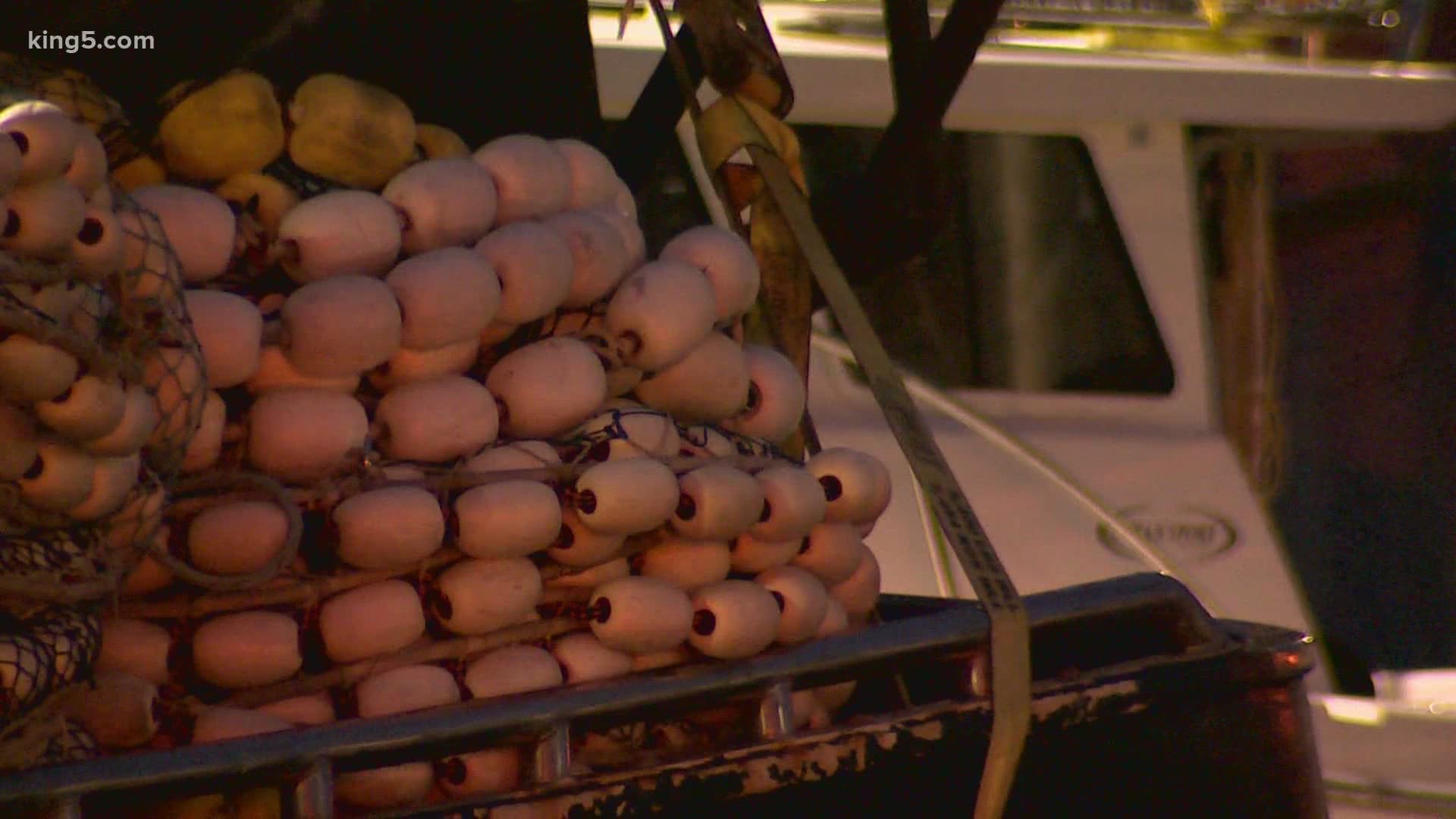SEATTLE — The coronavirus pandemic continues to hurt the seafood industry – and local fisheries are being forced to make major pivots to stay afloat.
"All the links in the seafood chain took a big hit," said Trevor Branch, an associate professor in the University of Washington School of Aquatic and Fishery Sciences.
Branch joined other researchers from across the country in looking at how COVID-19 has impacted the seafood industry.
The new study found that monthly fresh seafood exports declined up to 43% compared to last year, while monthly imports fell up to 37%, and catches dropped 40% in recent months.
"It's a question of how do you get your seafood? Most of the money we spend on seafood is spent in restaurants," said Branch.
Taylor Shellfish Farms used to sell to close to 200 restaurants a day, but COVID-19 restrictions shrunk that part of the business.
"The spring was really, really difficult with all the restaurants closed. But come, you know about June, we started seeing sales," said Marcelle Gonzalez, with Taylor Shellfish Farms.
The company had to focus on selling directly to customers.
"We have been able to pivot because we have always had so many different sales avenues. But yeah, if we were only selling into restaurants, our business would have been gone," Gonzalez said.
Branch said seafood companies are battling two challenges right now: the demand isn't what it used to be with restaurant restrictions and those large fishing boats present less than ideal conditions for combating the spread of COVID-19.
"It's like combining all the worst features of cruise ships and prisons and meat processing plants, all in one place," Branch said.
The fishing, hunting and agriculture sectors have the second-highest number of COVID cases behind the health care industry, according to the Washington State Department of Health.
"In my mind, if we want to ensure the continued supply of food to our system, we need to make sure that the people that are working on these boats, get the vaccine first," said Branch. "Otherwise, we're just risking further spread of COVID and further damage to the seafood industry."
Branch is concerned fisheries will continue to struggle without more government aid.

